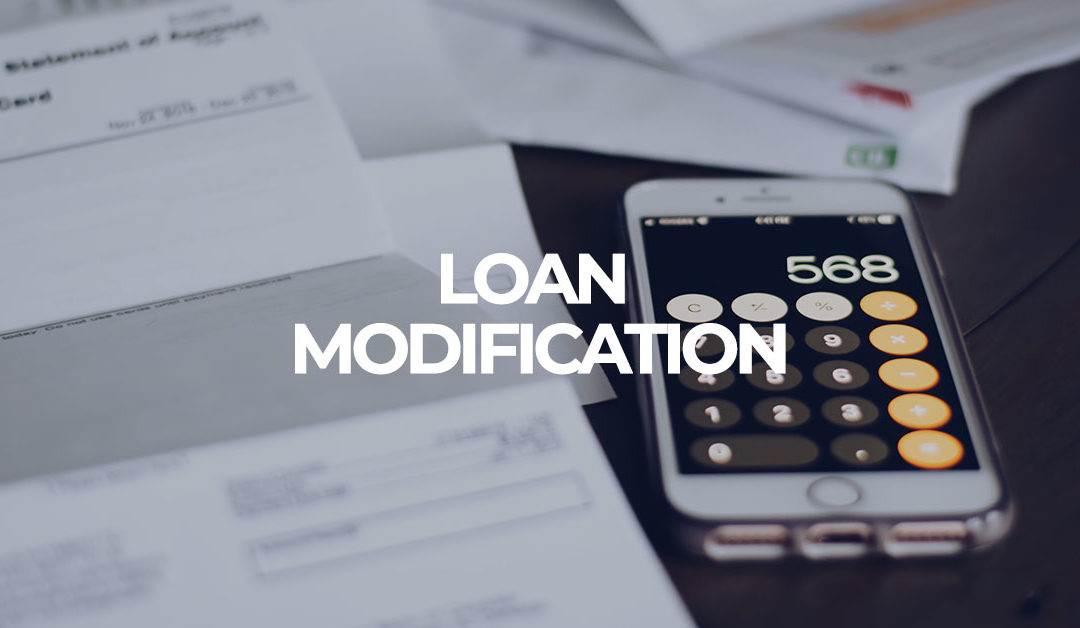A loan modification is a change made to the terms of a loan or mortgage that already exists.
- The changes are made and determined by the lender.
- A loan modification is meant to help a homeowner experiencing hardship and having trouble making their mortgage payments each month.
- Modification could involve a reduced interest rate, an extension of the loan term for repayment, or a different type of loan. It could also be any combination of the three.
- Getting your home loan modified is a different process than refinancing a mortgage. Refinancing means replacing your loan with a new mortgage.
- A loan modification does not do away with your loan; it merely changes the terms to the existing loan or mortgage.
How Does Loan Modification for Foreclosure Defense Work?
A loan modification means changing your mortgage in one or more ways:
- Extending the length of your loan.
- Lowering the interest rate or changing the type of loan.
- Changing your mortgage from an adjustable-rate to a fixed-rate loan is an example of loan modification.
The terms of the modification are up to your lender, but the outcome is lower, more affordable monthly payments for the homeowner. Foreclosure is costly for lenders, so many lenders are willing to do a loan modification to avoid foreclosure and help them keep their home.
Does Everyone Qualify for a Loan Modification?
Not everyone that is struggling to make their monthly payments can qualify for a loan modification. Generally, homeowners must either be delinquent on their mortgage or facing imminent default. Imminent default means that the homeowner is not delinquent yet, but there is a high probability that they will be delinquent in the near future.
Some reasons for imminent default can include:
- The loss of a job.
- The loss of a spouse.
- Disability or illness that has affected your ability to work and repay your mortgage.
What Types of Loan Modification Programs are Out There?
Some lenders will offer loan modification programs of their own. However, some lenders do not offer loan modification programs of their own. If this is the case for your lender, you can ask if you are eligible for other assistance programs to help you modify your mortgage.
The federal government offers loan modification programs that can help you prevent foreclosure. Two options are listed below.
HHF Loan Modification Program (HHF)
You may qualify for a loan modification program under the US Treasury. If you are unemployed, the Hardest Hit Fund (HHF) Program may help with mortgage payment assistance, work with your bank to reduce your principal, and help with banking issues involved in moving into a more affordable home.
Principal Reduction Alternative (PRA)
This program works with your bank to reduce the amount of overall principal owed. Currently, over 100 loan servicers are participating in this program.
How Do You Get a Mortgage Loan Modification?
If you are struggling financially and it’s challenging to make your mortgage payments, you might be a candidate for a mortgage loan modification. Contact your lender and ask about your options. Don’t avoid phone calls from your lender or procrastinate. That will only make matters worse. Address the situation immediately, or your choices will fade as your mortgage heads for foreclosure.
The loan modification process varies for different lenders. Some lenders require proof of hardship, while others might require a hardship letter explaining why you need the modification. If you are denied a loan modification, you can file an appeal with your lender or servicer.
Things to Know Before You Modify Your Loan
While doing a loan modification can help you if you’re struggling to make the payments each month, it can also come with consequences. According to the Experian website, some programs referred to as “loan modification” could hurt your credit scores because they are debt settlement.
If you negotiate a lower interest rate or reduced repayment, the account might be reported as “settled” or “paid for less than originally agreed,” which will hurt your credit scores. Before agreeing to a “loan modification,” review the contract and ask how your payment history will be reported. To keep your credit from dropping, the lender must report your account as “paid on time and in full.”
If your loan modification is temporary, you will need to return to the original terms of your mortgage after the agreed-upon amount of time. You will likely need to repay the amount deferred before you qualify for a new purchase or refinance a loan. Depending on how your mortgage is modified, your mortgage term could be extended, and it will take you longer to pay off the loan and cost you more in interest over time.
To homeowners that are at risk of losing their homes to foreclosure, the benefits of a mortgage loan modification can outweigh the potential credit risks and extra interest. Speaking with an experienced attorney can be beneficial to you. We here at Jarrett Law Firm can help you decide if a loan modification is right for you and your specific situation. Call us today to schedule an appointment.



Recent Comments